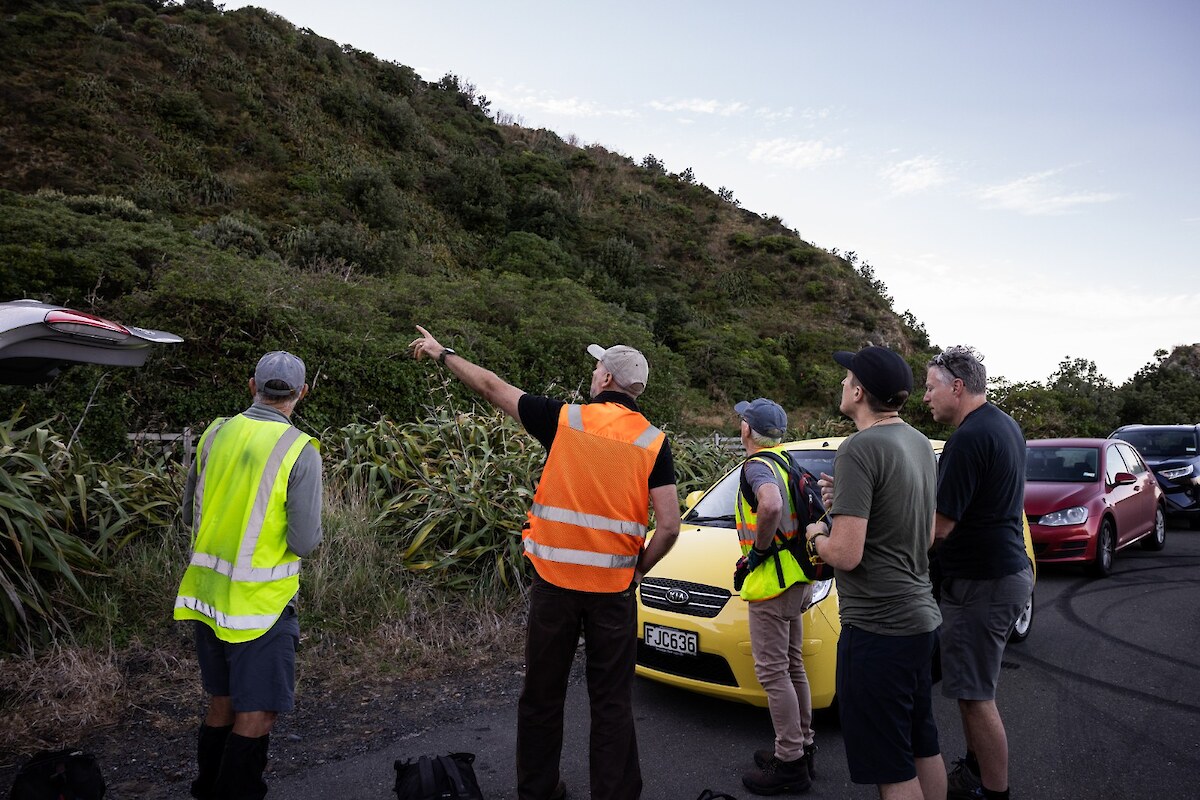Impact stories: Community buy-in and social cohesion
Qualitative evaluation – Most Significant Change
To better understand the impact of the Te Motu Kairangi, Miramar Peninsula project at a deeper level, Predator Free Wellington is capturing stories from residents, volunteers, staff and key stakeholders about changes that may have resulted from involvement in our predator free project on the Miramar Peninsula. We are using a technique called Most Significant Change, which is a participatory form of monitoring and evaluation that measures intangible qualitative indicators.
This story was selected as the most significant due to its unexpected nature. As a panel, we discussed how this story highlights how trapping initiatives foster community cohesion, allowing individuals to connect beyond differing views and backgrounds, everyone is in it together. Conservation efforts, via trapping and particularly through involvement in our project, serve as a medium to restore both community and environmental health.
Impact theme: Community buy-in and social cohesion
First person story from a Predator Free Miramar volunteer, November 2024.
I started volunteering with Predator Free Miramar in 2018. I was unwell at the time, having survived breast cancer and wanted to do more of the things that what would bring me joy in the world.
My son got involved with Predator Free Miramar through his school, Scots College, and this inspired me to get involved as well. I wanted to do something practical and in nature. I started with the Massey Memorial trap line, and at that stage there were lots of rats to catch.
The most significant change for me has been the community buy-in. Originally it was just a handful of people volunteering. Predator Free Miramar had just started to spread out, but it wasn’t important for most people, unless they were already involved in conservation.
People who previously wouldn’t have wanted to trap as they don’t like the idea of dead rats could get involved as Predator Free Wellington did the servicing. The visibility of predator free Wellington crew (signage, logos, letter drops) and positive publicity also increased awareness and buy-in of the work.
Trapping stories were regularly shared, so too were the pictures of dead rats - it was fun and there was a sense of competition.
In 2019, we had removed most of the rats and people started to take notice of the increase in birdlife and wanted to get more involved. The Predator Free Miramar Facebook group growth was astronomical.
Because predator free involved every neighbourhood on the peninsula, there was no division. We were all it in together, and it didn’t matter who you were, your background or where you live. It was inclusive in that sense.
There was a shared view of everyone wanting to make Miramar predator free and could see the benefits. It was really exciting.
There’s a shared sense of celebration and accomplishment. We have brought back the birdlife for the next generation. Kererū and kārearea have returned, so too have Ruru.
The local kārearea are common topics of conversation – “who or what is it attacking this week, and should I keep out of an area?” People are regularly publishing wildlife photos, and it’s really cool to see the change, great things are happening!
Predator Free Miramar volunteers have now moved on to managing the biosecurity. Creatures will keep getting into the peninsula, so we know we can’t stop now. Everyone realises we need to be vigilant, keep monitoring and report sightings so we can mobilise to catch the rat or stoat.
People are now also looking at what else they can do to protect the environment, we’re no longer just killing rats, some of us are also wanting to protect penguins, or volunteering with Te Motu Kairangi-Miramar Ecological Restoration on planting and weed control. There’s also other work being done by a master’s students looking at bigger ecological landscape change. It’s powerful, and with our big numbers, we can lobby and make change.
I have never been part of community development project that has been so successful. The community really own it!
 © Jim Huylebroek
© Jim Huylebroek
Posted: 15 November 2024
